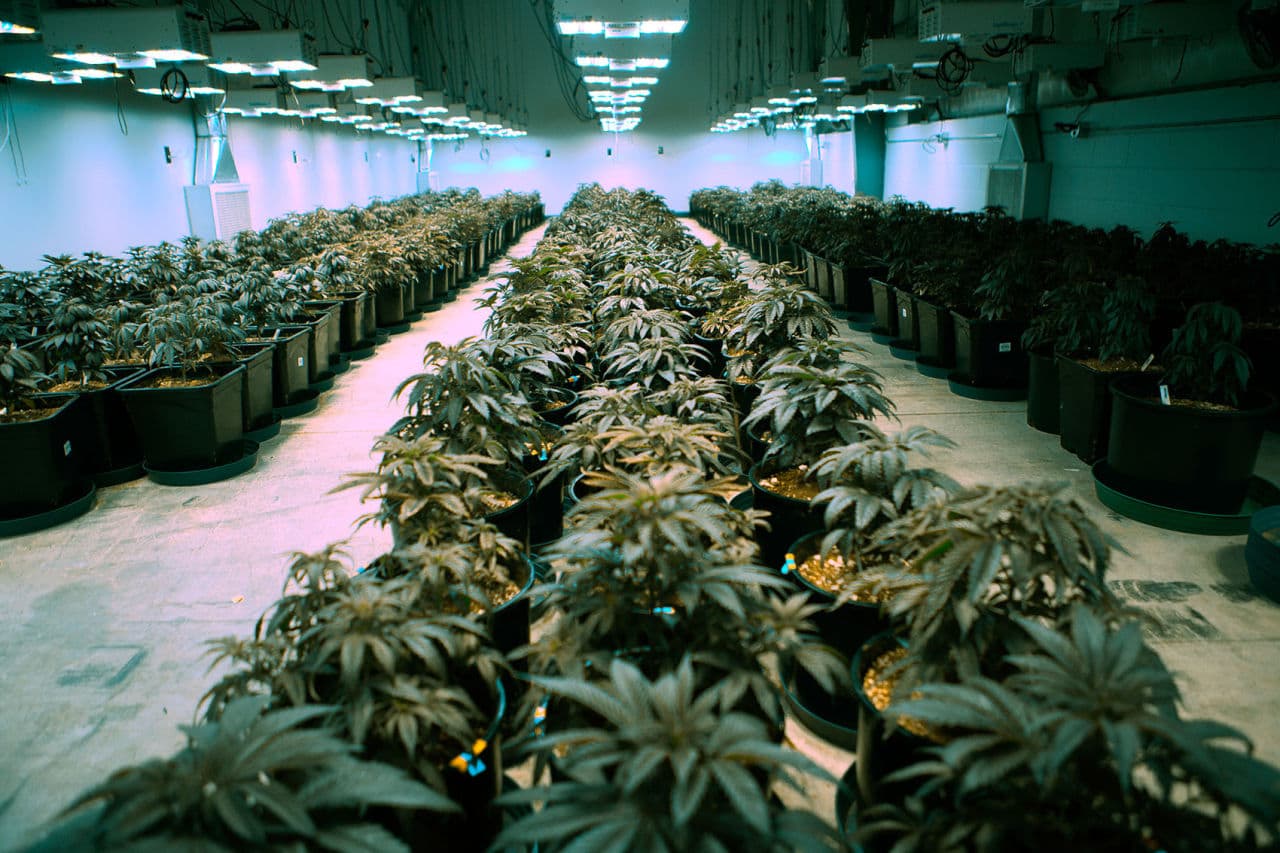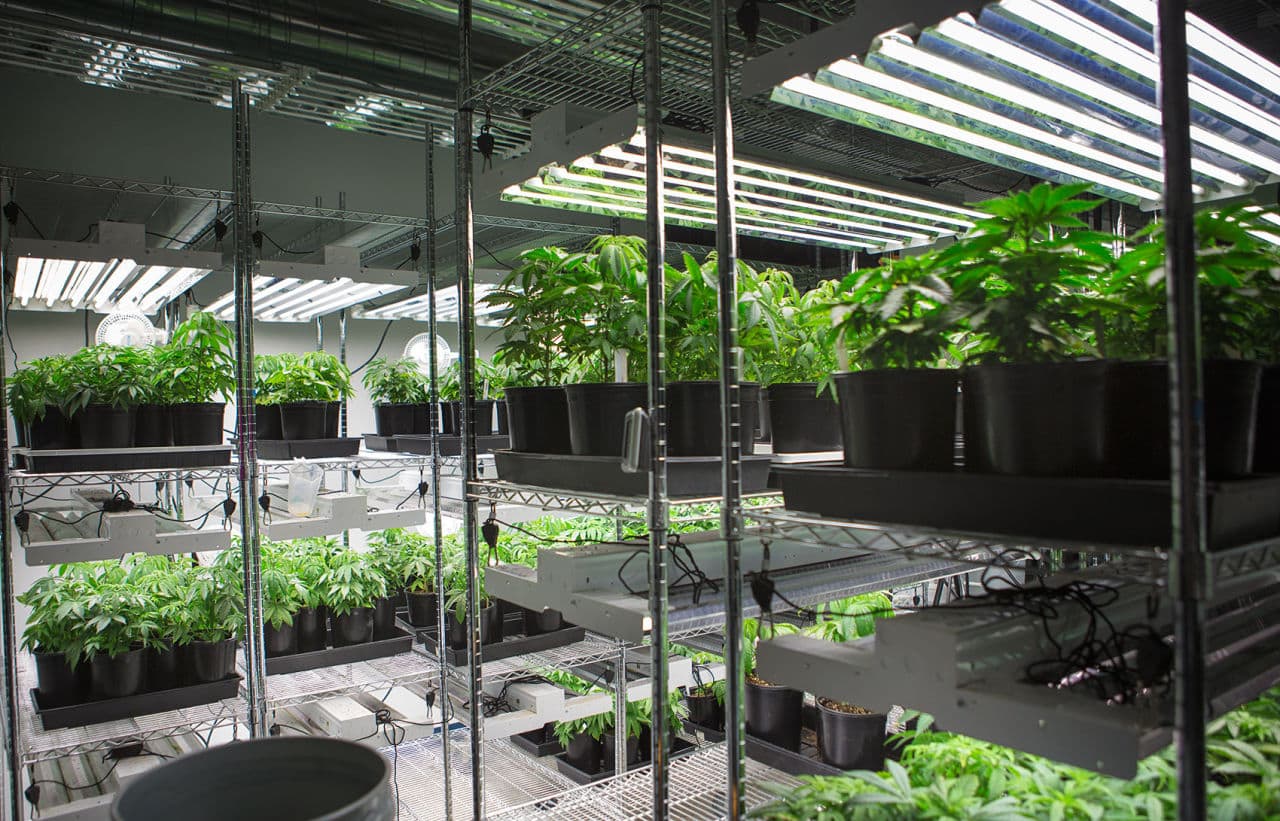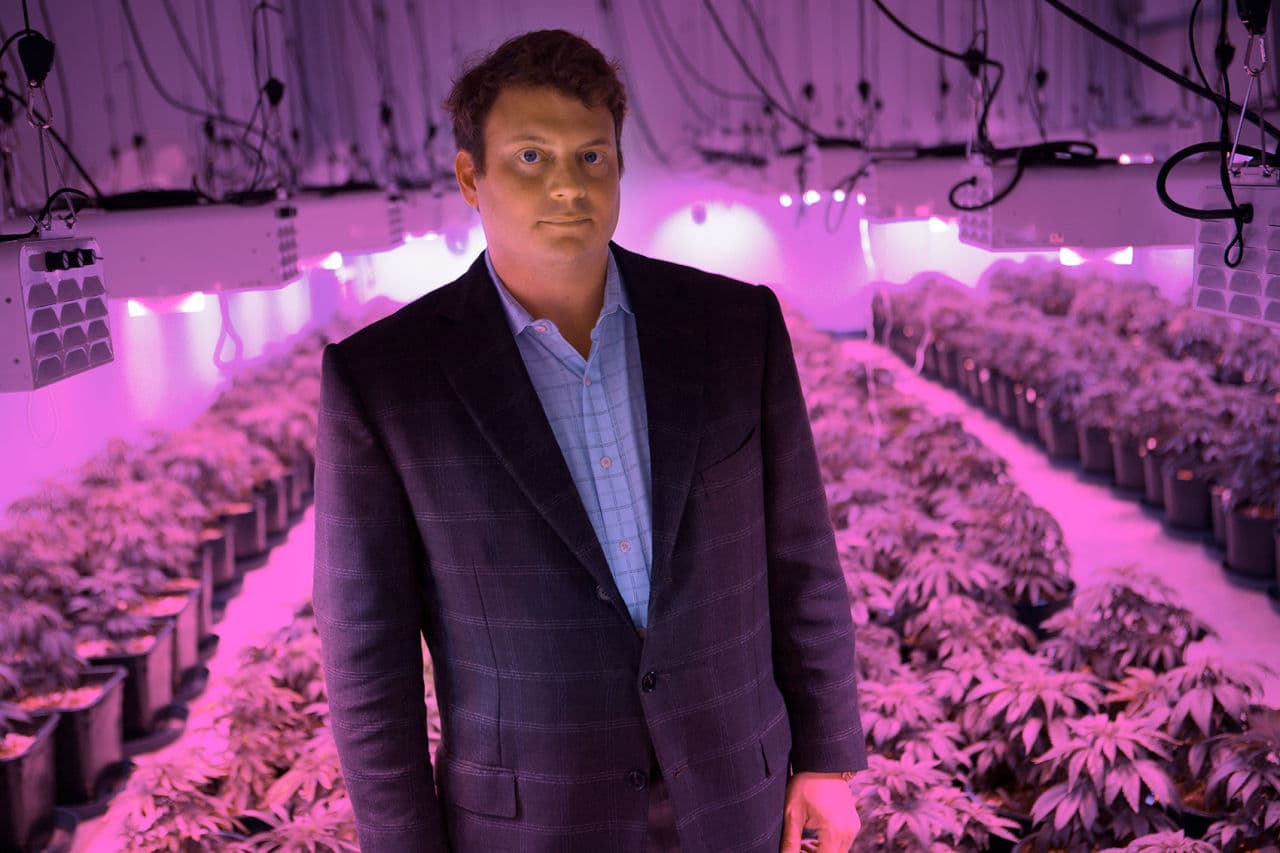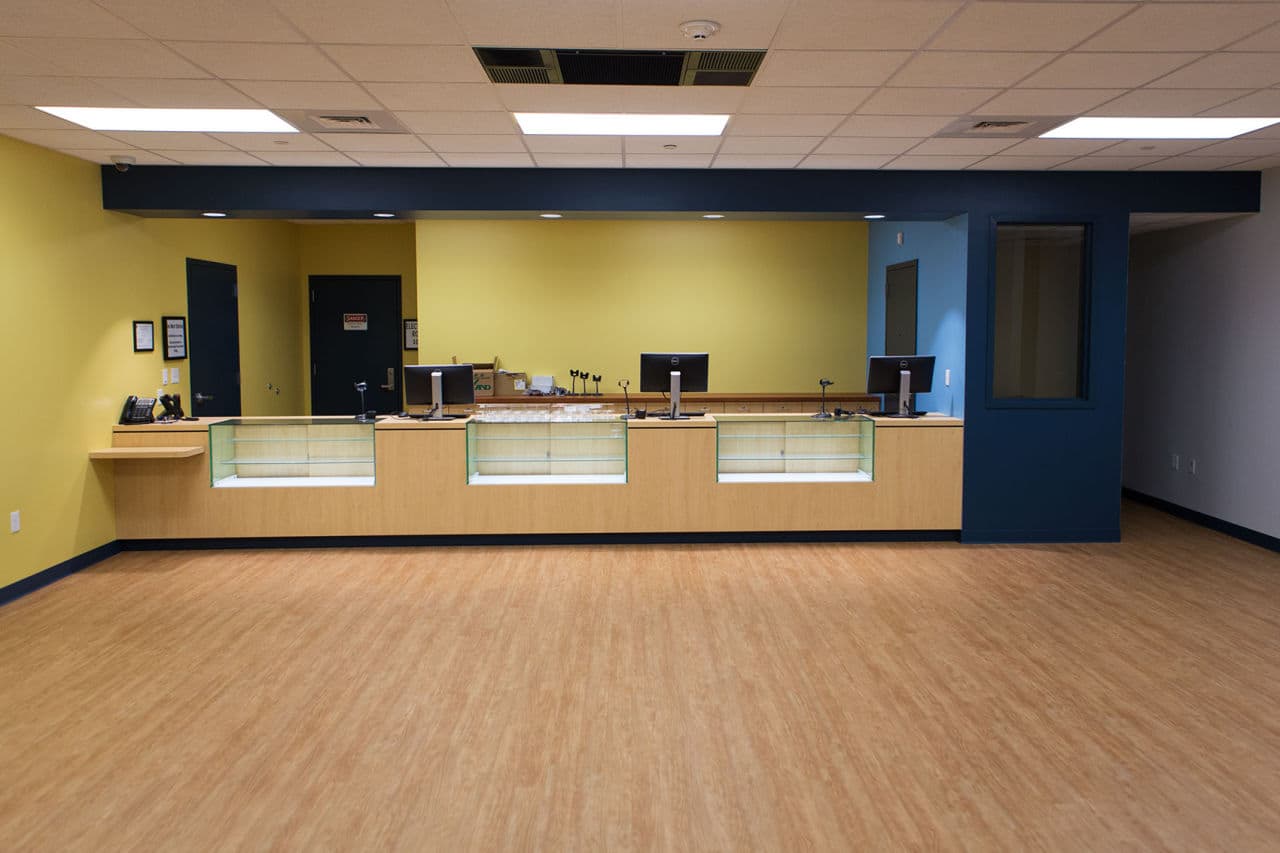Advertisement
A Warehouse Full Of Legal Weed: Medical Marijuana Takes Root In Brockton
ResumeThe hallway is white, pristine, almost corporate. But the operation behind one nondescript door is something completely new and different for Massachusetts.
Five-hundred plants in white, 5-gallon buckets sway and grow strong in a breeze created by fans. Rows of LED lights turn the room purple, blue, green or red, depending on which spectrum the plants need for optimum growth. The air is moist. And there's a hint of a certain smell in the air: the tangy, musky scent of marijuana.
Welcome to one of the state's first legal pot farms, this one attached to a Brockton medical marijuana dispensary called In Good Health.

Earlier this year, renting a 13,000-square-foot warehouse and planting several thousand marijuana seeds might have triggered a massive police bust, hefty fines and some serious time behind bars. But in April, this Brockton firm received its state license to grow marijuana for medical purposes.
The first challenge was figuring out where to buy seeds for a plant that is still illegal under federal law.
"We sourced them from undisclosed locations" and then got started, says David Noble, the CEO of In Good Health.
Now Noble has 1,500 plants in various stages of their 110-day growing cycle. Life begins in the seed room, where they are kept damp until they sprout. Stage two is the vegetation room. Sprouts begin to take root in red Solo cups. Each plant has a tag with its planting date, a unique bar code for tracking and its strain name.

"This is one is White Knuckles," says Noble, pulling the purple plastic marker out of one cup. It's one of 32 different strains Noble plans to sell. "We kept all of the, if you want to call them 'street names,' because if you went over the country these are the main street names that are used."
The seedlings are transplanted into 1-gallon, then 3- and eventually 5-gallon buckets where they'll grow to 6 feet. Noble estimates he'll get 2 to 4 ounces of dried marijuana bud from each plant and another 1 to 2 ounces of leaves that will go into his extraction machine.
"Which will turn into an oil," Noble says. "The oil is then used for our edibles, our tinctures, our waxes, so the only thing that won’t be used is the root ball, the stem and the dead leaves."

Noble is a former nursing home administrator who was recruited to run In Good Health by his mother.
"In Good Health was her idea, it was her concept," Noble says. Andrea Noble will be in charge of patient satisfaction when the dispensary opens, possibly next month.
The Brockton dispensary is one of four, to date, cleared to grow marijuana under a medical marijuana law approved by voters in 2012. Eleven more are in the pipeline in what has been a rocky first phase of implementation. Ninety-six more dispensaries filed applications two weeks ago, the first step in a revised approval process.
Dispensaries in Massachusetts must grow all the marijuana they sell. Most have separate cultivation facilities. But In Good Health is a combined project, in a former printing plant in an industrial section of Brockton. Patients will drive to the back of a large warehouse, walk up to a locked glass door and hold their state issued medical marijuana card up to a security camera.
"Once we see your card, we’ll let you in the front door," Noble explains. "Once you get into the front door, they’ll be a security guard at a podium, to direct the patients to our lockers, to please put your bags, coats, hats. You can’t come into the dispensary with anything except your two forms of ID, your cash or your debit card."
The dispensary will not accept personal checks or credit cards, Noble says, "because the credit card companies still will not process these transactions. We will however take a debit card, because we’ve found a company out west that can process debit transactions.
Noble does not want to name that company.
After storing their belongings, patients will pass through a metal detector and check in at a security window. Each dispensary will have its own security system. All will be connected to a patient database.
"We’ll log you into the system to make sure you weren’t at another dispensary this morning and already purchased your maximum quantity" of 10 ounces in 60 days, Noble says. Each purchase is entered into the database in real time. "That’s how we track it, like a pharmacy would, they know exactly what you bought."
Patients cleared for entry will walk into a large room with a long glass counter at one end. It's divided into three cases: one for the flower or dried bud, one for edibles, oils and waxes and a third for devices such as vaporizers or pipes. Noble expects 50 percent of sales will be cookies, candy and other edibles a chef will make in a kitchen on site.

At the glass counter, a dispensary worker will create or pull up the patient’s computerized file.
"We have something called symptom tracker in our system. We can list the patient's medication, their symptoms and keep track of what works for them," Noble says.
The idea is to help patients figure out, over time, which strains they like, in what form, and how much they should take if they want to continue using marijuana. There are no set recommendations for use. Noble says each patient is different and will determine their course of treatment. The dispensaries do not plan to share patient records.
Noble has invested more than $2 million in this facility. He expects to have 25 employees when the dispensary opens. He's agreed to give the city of Brockton 3 percent of his gross revenue for general spending and an additional 1 percent that will go to drug prevention and treatment programs. Noble has substantial obligations, but his return on investment looks pretty good. He’s got marijuana that could be worth more than $2 million in various stages of growth already. The question is: will it sell?
"Are there going to be 10 people outside the first day or 10,000? That’s just the unknown," Noble says.
There are no sales reports from the one dispensary that has opened, in Salem.
To date, 20,362 patients have marijuana medical certificates from a physician, but only half those patients have completed the paperwork and paid the $50 fee needed to register through the state Department of Public Health. So will they all become buyers? How much will they use and how often? These are all unknowns as the medical marijuana industry takes shape in Massachusetts.
